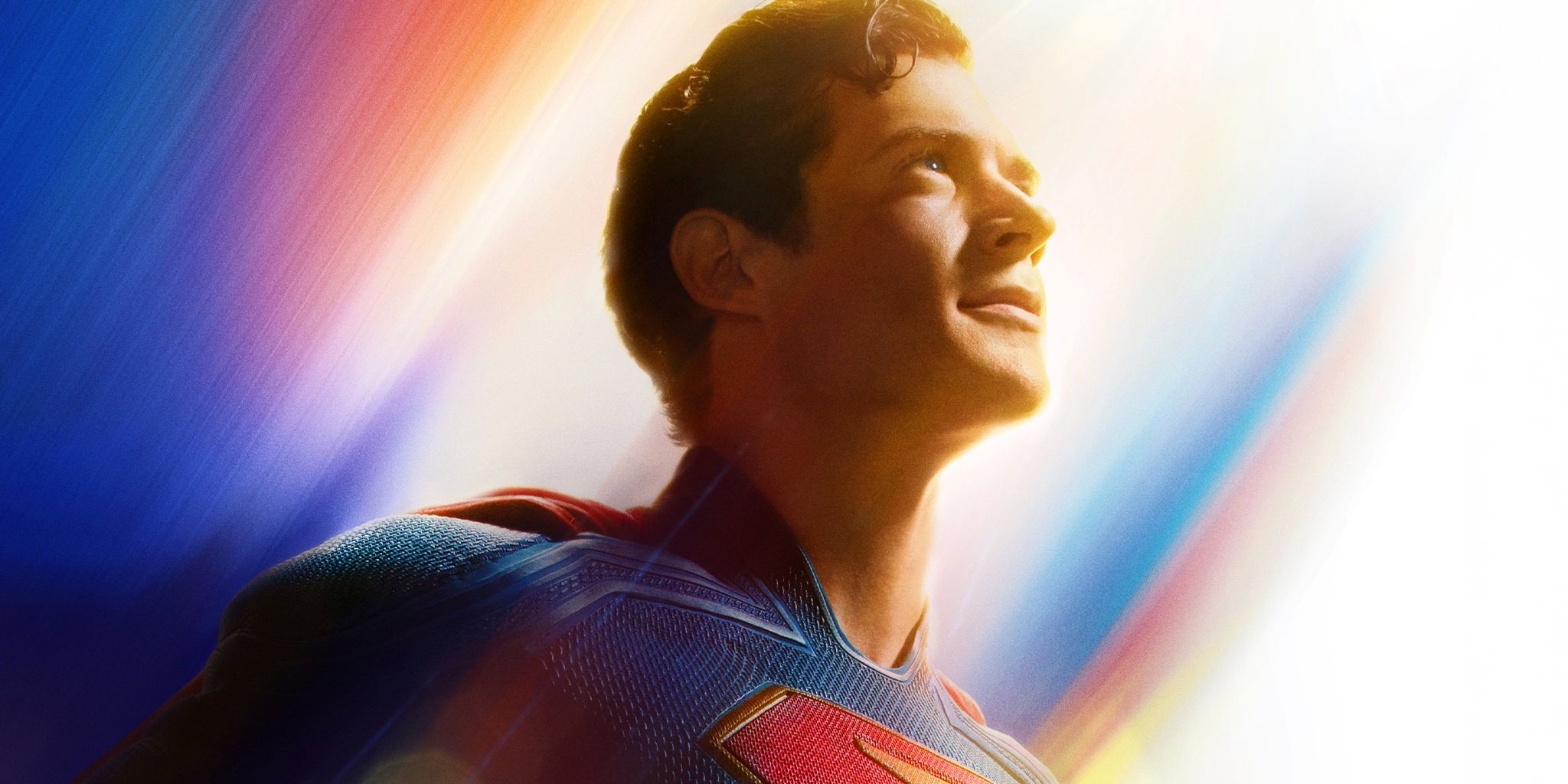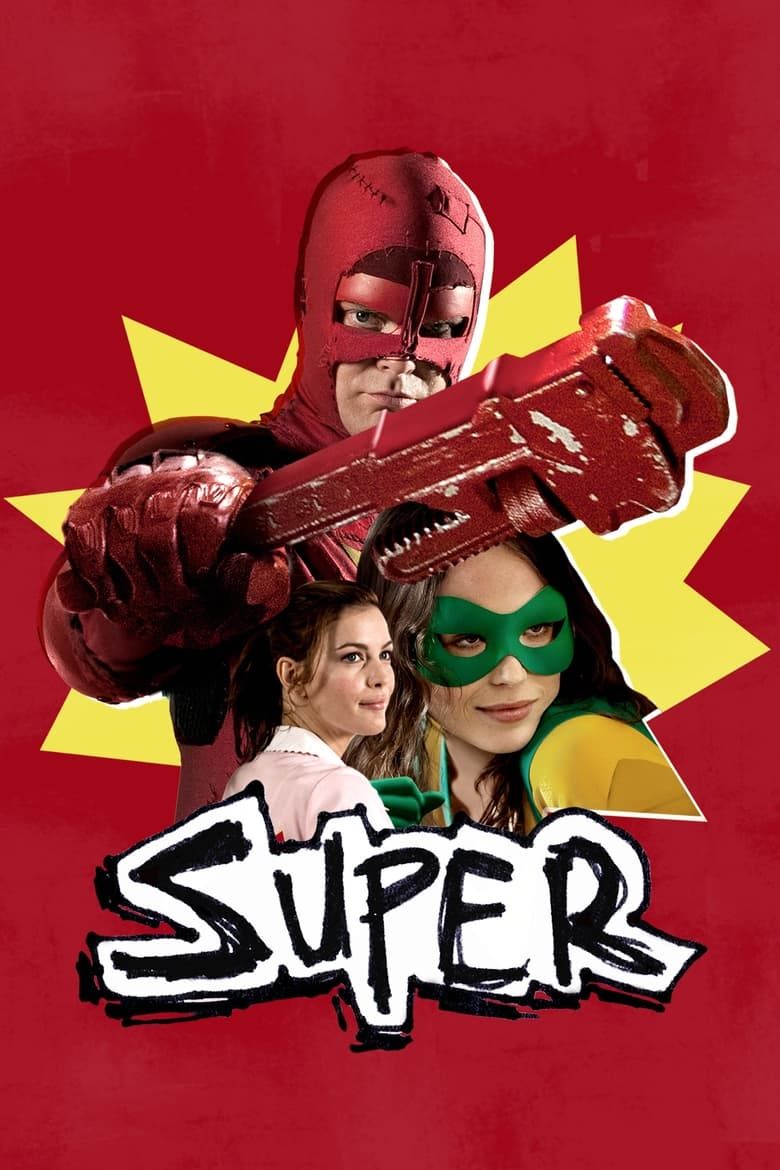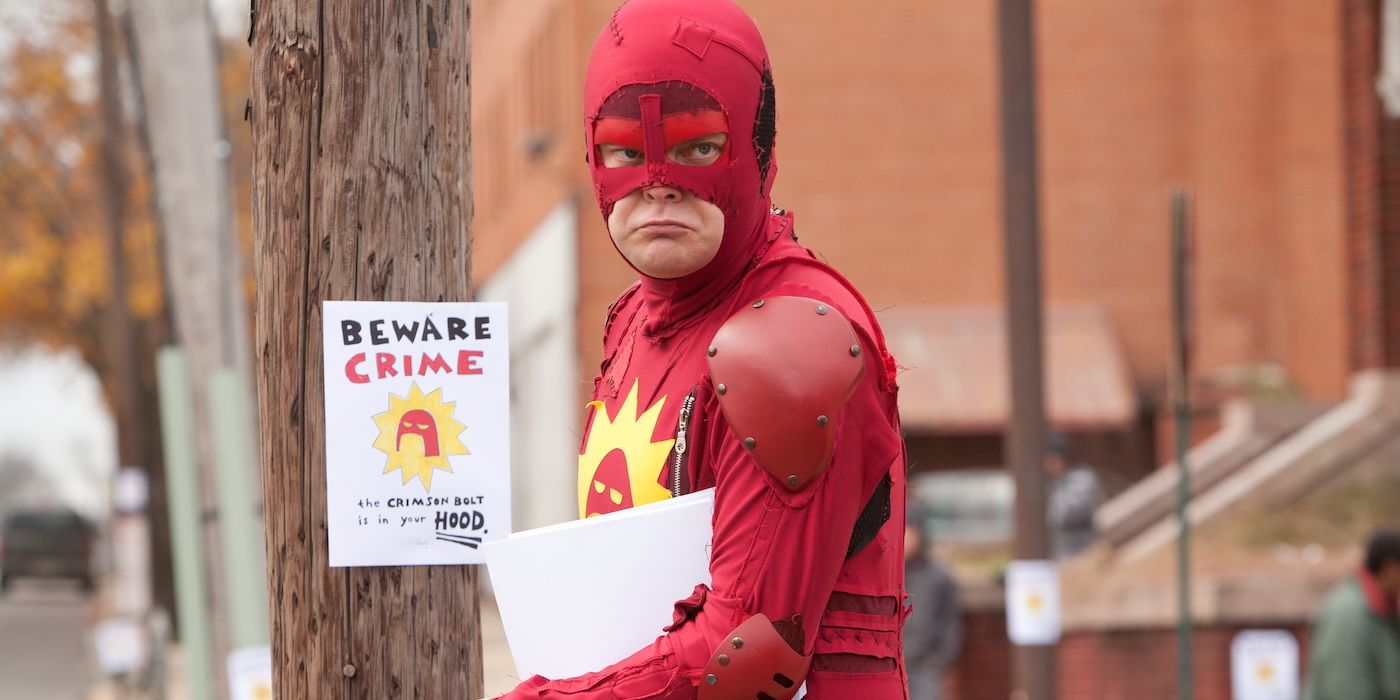Superhero cinema has become such a dominant force within popular culture that it has drawn in prestigious directors like Christopher Nolan, Ryan Coogler, Chloé Zhao, and James Mangold, among others, regardless of their personal affinity for the material. Although there is a notion that every established filmmaker who wants to work on a blockbuster scale must eventually make a superhero film, there is nothing artificial about James Gunn’s love for comic books. Even since his early days making Troma shorts, it was evident that Gunn had an encyclopedic knowledge of the DC and Marvel universes and enjoyed making references to his favorite characters. Before he got the opportunity to direct Guardians of the Galaxy and Superman, Gunn directed the brutal, darkly hilarious superhero satire Super.
Super was, unfortunately, a box office disappointment due to factors that were beyond Gunn’s control. Although the film made several pointed references to DC and Marvel characters, it was released while the Marvel Cinematic Universe was in its infancy, and DC had not had any real major successes outside of Nolan’s films. Additionally, it happened to be released shortly after the success of Kick-Ass, another R-rated superhero movie that explored a hero with no powers. Although it didn’t earn the same critical acclaim that his later work would receive, Gunn created an interesting satire about superheroes in Super, as the film is surprisingly both very sincere and highly cynical.
What Is ‘Super’ About?
Super stars Rainn Wilson as miserable short-order cook Frank Darbo, who is coping with a breakup from his wife Sarah Helgeland (Liv Tyler), after she has fallen under the influence of the sinister strip club owner Jacques (Kevin Bacon). Frank’s only means of dealing with his depression is through his Christian faith, which leads him to experience a strange vision in which the costumed superhero from a faith-based television program urges him to suit up for his own. Despite having no powers, combat skills, or knowledge about superheroic responsibilities, Frank decides to create the alternate ego “The Crimson Bolt,” and attempts to save the streets with the slogan “shut up, crime!” He is eventually joined by the store clerk Libby (Elliot Page), who decides to join him as an official sidekick. Although Frank’s actions draw both praise and skepticism from the media, he faces his greatest challenge yet upon realizing that Sarah is in even greater danger, and that Jacques must be stopped.
Super is an astute parody of the traditional superhero origin story, as Frank’s backstory is tragic in a way that is different from that of Peter Parker or Bruce Wayne. Although many comic book myths begin with their heroes experiencing a tragic event during their childhood that inspires them to fight evil, Frank has to deal with embarrassment as an adult, which leads him to act like a man-child. It becomes clear that Frank is dealing with severe emotional issues that he has no means of coping with, which is evident by the fact that the initial news report claims that he is a psychopath. However, Gunn recognizes that people are susceptible to stories about heroes, and shows how the narrative surrounding Frank gradually begins to change. After it is revealed that many of the people Frank attacked were guilty of sinister crimes, the local media outlets begin to view him as a savior.
Super adds a dose of reality to its story, as while it is a parody of comic book narratives, the film is actually not very over-the-top. Jacques makes for an interesting villain because he is traditionally captivating in the way that a comic book villain like Lex Luthor or Norman Osborn would be; rather, he is just a scumbag who is willing to let Sarah relapse on her addictions. Frank’s life doesn’t become much better because of his actions, and it becomes evidently clear that Libby is more competent than he is in every way. Super may also be Gunn’s most violent film, as he does not shy away from the repercussions of an unstable man like Frank charging into situations against legitimate criminals.

Related
‘Superman’ Learned the Right Lessons From ‘The Batman’ — Here’s What That Means
Let’s get to the truth of our heroes.
‘Super’ Is Both a Celebration and Satire of Comic Book Cinema
Super does show the positive effects that superhero stories can have, as, despite the minimal change he is able to make as The Crimson Bolt, Frank does begin to feel more passionate about life again after investing in his alternate identity. In many ways, the film can be seen as a satire of religion, which is evident by the predominance that Frank’s Christian faith plays within his identity. While it’s possible to take inspiration from the positive themes within stories, whether they are from the Bible or from a comic book, it becomes more problematic when they are treated as reality, and not metaphor. Even though Frank’s intentions are initially pure, Super implies that anyone who puts on a cape and cowl is somewhat narcissistic.
Super is a film that could have only existed as an original project, as it wouldn’t have worked if Gunn had made a film as transgressive and exploitative within the Marvel or DC universes. Even if there are a lot of jokes made at the expense of comic book fans, Gunn does show an affinity for superhero mythology. Perhaps he was only able to make superhero movies as great as Guardians of the Galaxy, Superman, and The Suicide Squad after recognizing how silly comic book characters would be if they existed in real life.



